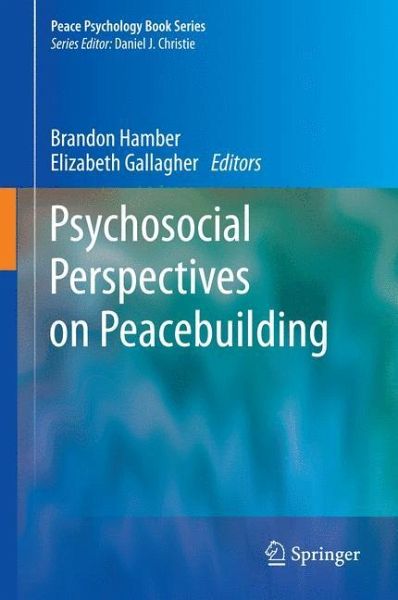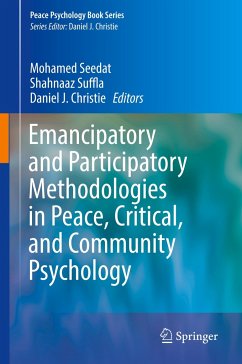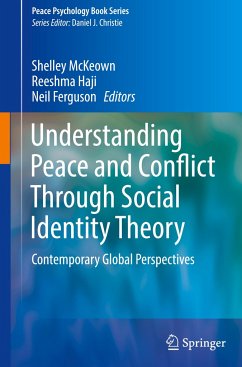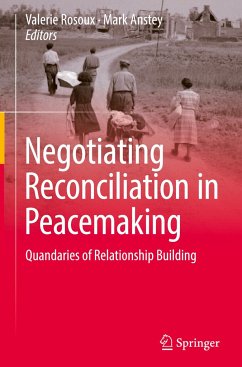
Psychosocial Perspectives on Peacebuilding

PAYBACK Punkte
38 °P sammeln!
The book Psychosocial Perspectives on Peacebuilding offers a template for those dealing with the aftermath of armed conflict to look at peacebuilding through a psychosocial lens. This Volume, and the case studies that are in it, starts from the premise that armed conflict and the political violence that flows from it, are deeply contextual and that in dealing with the impact of armed conflict, context matters. The book argues for a conceptual shift, in which psychosocial practices are not merely about treating individuals and groups with context and culturally sensitive methods and approaches:...
The book Psychosocial Perspectives on Peacebuilding offers a template for those dealing with the aftermath of armed conflict to look at peacebuilding through a psychosocial lens. This Volume, and the case studies that are in it, starts from the premise that armed conflict and the political violence that flows from it, are deeply contextual and that in dealing with the impact of armed conflict, context matters. The book argues for a conceptual shift, in which psychosocial practices are not merely about treating individuals and groups with context and culturally sensitive methods and approaches: the contributors argue that such interventions and practices should in themselves shape social change. This is of critical importance because the psychosocial method continually highlights how the social context is one of the primary causes of individual psychological distress. The chapters in this book describe experiences within very different contexts, including Guatemala, Jerusalem,Indian Kashmir, Mozambique, Northern Ireland, South Africa and Sri Lanka. The common thread between the case studies is that they each show how psychosocial interventions and practices can influence the peacebuilding environment and foster wider social change. Psychosocial Perspectives on Peacebuilding is essential reading for social and peace psychologists, as well as for students and researchers in the field of conflict and peace studies, and for psychosocial practitioners and those working in post-conflict areas for NGO's.














